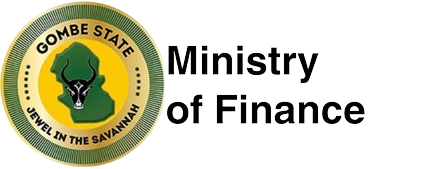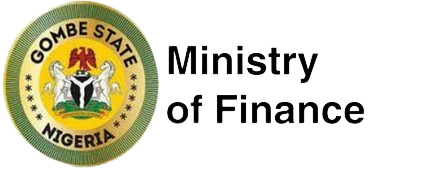[vc_row el_class=”full-width-bg” bg_color=”#ffffff”][vc_column][vc_row_inner equal_height=”yes” el_class=”animate-onscroll”][vc_column_inner el_class=”col-lg-9 col-md-9″ width=”3/4″][interactive_banner heading_tag=”h2″ banner_desc=”The Gombe State Urban Planning Development Authority” banner_image=”id^2194|url^https://mof.gm.gov.ng/wp-content/uploads/2022/07/gosupda2.jpg|caption^null|alt^null|title^gosupda2|description^null” banner_style=”style11″][vc_separator][/vc_column_inner][vc_column_inner el_class=”col-lg-3 col-md-3″ width=”1/4″][vc_banner title=”Gombe State Budgets” text_banner=”” icon=”icon-money-1″ custom_link=”https://mof.gm.gov.ng/budgets/”][vc_banner title=”CONTRACTORS” text_banner=”” icon=”icon-newspaper” custom_link=”https://pneumasofterp.azurewebsites.net/ACF/ACFIndex”][vc_banner title=”PENSIONERS” text_banner=”” icon=”icon-users” custom_link=”https://pneumasofterp.azurewebsites.net/ACF/PensionIndex” css_animation=”appear”][vc_banner title=”REPORTS” text_banner=”” icon=”icon-group” custom_link=”https://mof.gm.gov.ng/citizens/”][vc_separator][/vc_column_inner][/vc_row_inner][/vc_column][/vc_row][vc_row seperator_indeed_locker=”” lk_t=”ism_template_1″ lk_io=”default” lk_dm=”0″ lk_thm=”0″ lk_tuo=”0″ ru_on=”0″ uhc_on=”0″ ur_on=”0″ ref_on=”0″ css=”.vc_custom_1617615662443{background-color: #55853f !important;}”][vc_column][vc_column_text]
DEBT MANAGEMENT OFFICE
The Gombe state DMO was established to centrally coordinate the management of the state’s debt. The office works closely with the Ministry of Finance and Economic Development and other Offices under the ministry to help ensure a viable and strong economy for the state. Basically, to achieve a level of autonomy and to ensure professionalism in line with international best practice, the Gombe state DMO was established as an Office under the state Ministry of Finance and Economic Development.
It is headed by a Director-General, who is a technocrat and professional in the areas of debt management.
ANNOUNCEMENT: The state Government has Verified that it is owing some of her contractors. Please check your details using the appropriate link below. However, any Contractor whose name does not appear on the list via the link should contact the Debt Management Office, Ministry of finance Gombe via email: dmogombe@mof.gm.gov.ng
[/vc_column_text][/vc_column][/vc_row][vc_row][vc_column width=”1/2″][ultimate_heading]
FUNCTIONS OF THE DMO
[/ultimate_heading][vc_column_text css=”.vc_custom_1617373720501{margin-right: 5px !important;margin-left: 5px !important;}”]The primary functions of the Gombe state Debt Management Office are:
- Maintain a reliable database of all loans taken or guaranteed by the State Government or any of its agencies
- Prepare and submit to the State Government, a forecast of loans service obligations for each financial year
- Prepare and implement a plan for the efficient management of State’s external and domestic debt obligations at sustainable levels compatible with desired economic activities for growth and development and participate in negotiations aimed at realizing those objectives
- Verify and reconcile external debts service guaranteed or directly taken by the State Government with Federal DMO
- Verify and service domestic debt guaranteed or directly taken by the State Government, with the Accountant General
- On an agency basis, service domestic debt taken by Local Government and any of their agencies, where such debt is guaranteed by the State Government
- Advise the State Government on restructuring and re-financing of all debt obligations
- Advice the DMC on the terms and conditions on which monies are to be borrowed
- Submit to the State Government, for consideration in the annual budget, a forecast of borrowing capacity in local and foreign currencies
- Prepare a schedule of any other State Government obligations such as contingent liability, both explicit and implicit, and provide advice on policies and procedures for their management
- Established and maintain tripartite relationships between the State, International Financial Institutions (IFIs)/Donor Agencies and the Federal DMO
- Collect, Collate, disseminate information, data and forecast on debt management
- Carry out such other function, which may be delegated to it by the Commissioner or by an act of the State Assembly
- Perform such other functions which in the opinion of the Department are required for the effective implementation of its functions.
[/vc_column_text][/vc_column][vc_column width=”1/2″][ultimate_heading]
DUTIES/SCHEDULES OF FRONT, MIDDLE AND BACK OFFICES
[/ultimate_heading][vc_column_text css=”.vc_custom_1617373859697{margin-right: 5px !important;margin-left: 5px !important;}”]I) FRONT OFFICE/PORTFOLIO MANAGEMENT UNIT
- Loan Negotiations
- Security Issuance
- Loans and other Financial Product
- Risk and Asset Management
- Government Guarantees
II) MIDDLE OFFICE/POLICY, STRATEGY AND RISK MANAGEMENT UNIT
- Articulate State policy, Strategies and objectives of the public debt base on State Government Development Policy
- Analyze risk and mitigating factors associated with existing and new State debt portfolio
- Undertake research, documents and publish a periodic report on DMO operations
- Monitor compliance with approved work plan and procedures of projects financed by loan proceeds
- Obtain from the back office, disbursement/amortization schedules for all categories of loans and forward copy to appropriate benefitting agency
- Undertake inspection visit on projects funded by loans and prepare a report on compliance on a project by project basis. In addition, a quarterly report detailing the progress of work on each project funded by the loan will be prepared by the middle office
III) BACK OFFICE/DEBT RECORDING AND SETTLEMENT UNIT
- Duly record internal and external debt, debt resulting from on-lent loans, grants and counterpart fund, contractors’ debt, and contingent liabilities of the State
- On a quarterly basis, undertake debt data validations and reconciliation with Federal DMO
- Promptly records new disbursements
- Records and update service payments
- Prepare on an annual basis, budget for debt service payments and their due dates for the approval of the Commissioner
- At the beginning of each year send a copy of the projected debt service payment schedules to the Accountant General of the State
- At least, one month prior, advise the Accountant General on the due dates for the debt service payment
- Obtain demand note/bills from creditors
- Process and pass the Demand Notes to the AG to issue payment mandate to effect payment
- Received Payment Advice from the AG, reconcile actual and the projected dates and amounts paid, and update the records accordingly
- On a regular basis, undertake debt service data reconciliation with the AG
- On a regular basis, track and monitor the service of the counterpart funds
[/vc_column_text][/vc_column][/vc_row][vc_row disable_element=”yes” seperator_indeed_locker=”” lk_t=”ism_template_1″ lk_io=”default” lk_dm=”0″ lk_thm=”0″ lk_tuo=”0″ ru_on=”0″ uhc_on=”0″ ur_on=”0″ ref_on=”0″ el_class=”full-width-bg gray-bg”][vc_column][vc_row_inner][vc_column_inner el_class=”col-lg-9 col-md-9″ width=”3/4″][vc_mylatest_news my_product_cat=”15″][vc_mylatest_post num_items=”4″ columns_count=”3″ my_product_cat=”15″][vc_mylatest_campaign][/vc_column_inner][vc_column_inner el_class=”col-lg-3 col-md-3 animate-onscroll” width=”1/4″][vc_featured_video video_link=”43463474″ custom_link=”google.com” custom_link_text=”More Videos” custom_links_target=”_blank” type_video=”vimeo”][vc_upcoming_events limit=”2″ custom_link=”http://google.com” custom_link_text=”More info” custom_links_target=”_blank”][vc_main_issues custom_link=”http://inthe7heaven.com/” custom_links_target=”_blank” custom_image=”72″][vc_flickr flickr_id=”76745153@N04″ count=”6″ title=”Flickr Photos”][/vc_column_inner][/vc_row_inner][/vc_column][/vc_row][vc_row][vc_column][vc_custom_heading text=”POLICIES AND REPORTS” font_container=”tag:h2|text_align:center” use_theme_fonts=”yes” el_class=”sear-heading”][/vc_column][/vc_row][vc_row][vc_column width=”3/4″ el_class=”ser-09″][vc_column_text][ivory-search id=”1354″ title=”Default Search Form”][/vc_column_text][/vc_column][/vc_row][vc_row][vc_column width=”1/2″][bsf-info-box icon=”Defaults-book” icon_size=”32″ icon_color=”#55853f” title=”Arrears Clearance Framework 2020″ read_more=”more” read_text=”Download ACF” pos=”left” el_class=”Custom-aio-icon”]The introduction of the Arrears Clearance Framework comprised of the coverage and scope of the framework, purpose of the framework document, users of the framework document, and presentation of the State’s domestic expenditure arrears and description of the State’s policy on arrears.[/bsf-info-box][bsf-info-box icon=”Defaults-bar-chart bar-chart-o” icon_size=”32″ icon_color=”#55853f” title=”Gombe Debt Sustainability Analysis” read_more=”more” read_text=”Download Documents” pos=”left” el_class=”Custom-aio-icon last-aio-icon”]The State shows a medium debt position that appears sustainable in the long term. The medium debt position results from the State’s average performance in terms of mobilizing IGR underpinned by the successful tax administration reforms introduced recently in May 2020. The State controls its recurrent expenditure growth and reduces the level of its public debt due to the collapse of oil prices, COVID-19 pandemic and exchange rate fluctuations.[/bsf-info-box][/vc_column][vc_column width=”1/2″][bsf-info-box icon=”Defaults-list-alt” icon_size=”38″ icon_color=”#55853f” title=”Secure User Login to DMO Portal” read_more=”more” link=”url:https%3A%2F%2Fstaging.mof.gm.gov.ng%2F” read_text=”Secure User Login to DMO Portal” pos=”left” el_class=”Custom-aio-icon”]Secure User Login to DMO Portal[/bsf-info-box][bsf-info-box icon=”Defaults-archive” icon_size=”38″ icon_color=”#55853f” title=”Global Credit Rating (GCR)” pos=”left” el_class=”Custom-aio-icon last-aio-icon”]Global Credit Ratings has accorded the above credit ratings to Gombe State Government of Nigeria (“Gombe State”) based on the following key criteria:
Although, a number of economic policies have been implemented to drive rapid industrialisation and diversify revenue streams, these programmes have yielded few tangible benefits, with revenue growth remaining weak, registering around the N50bn mark in the last seven years. This has been exacerbated by the significant dependence on oil price linked allocations from the Federal Government of Nigeria (“FGN”). While this source plays an important role in the funding structure, the unpredictability of earnings hampers financial planning, while also exposing a substantial funding gap, as has played out in the last few years.
The current expense base appears manageable (as recurring revenue was sufficient to cover costs). Nevertheless, higher staff costs and overheads saw the expense ratio expand to 69%, partly constraining the operating surplus in FY17. Nevertheless, a combination of robust income growth and cost rationalisation measures should drive growth in surpluses over the medium term, which will free up cash for capex developments. Read more from GCR website[/bsf-info-box][/vc_column][vc_column][ult_buttons btn_title=”VIEW ALL POLICIES” btn_align=”ubtn-center” btn_title_color=”#ffffff” btn_bg_color=”#155180″ icon_size=”32″ btn_icon_pos=”ubtn-sep-icon-at-left”][/vc_column][/vc_row][vc_row seperator_indeed_locker=”” lk_t=”ism_template_1″ lk_io=”default” lk_dm=”0″ lk_thm=”0″ lk_tuo=”0″ ru_on=”0″ uhc_on=”0″ ur_on=”0″ ref_on=”0″ css=”.vc_custom_1617364589825{background-image: url(https://mof.gm.gov.ng/wp-content/uploads/2017/05/slide_full3.jpg?id=808) !important;}”][vc_column][vc_column_text]
SOME IMPORTANT METRICS
The Gombe state Debt management office closely monitors a number of important metrics to help keep the economy as strong as possible.
[/vc_column_text][vc_row_inner el_id=”mutli-blue-box”][vc_column_inner width=”1/6″ css=”.vc_custom_1617363177297{background-image: url(https://mof.gm.gov.ng/wp-content/uploads/2021/03/stratuse-document.jpg?id=1196) !important;}”][bsf-info-box icon_type=”custom” icon_img=”id^1252|url^https://mof.gm.gov.ng/wp-content/uploads/2021/03/0008_Layer-51.png|caption^null|alt^null|title^_0008_Layer-51|description^null” img_width=”48″ title=”29 States 558 LGA”][/bsf-info-box][/vc_column_inner][vc_column_inner width=”1/6″ css=”.vc_custom_1617363196121{background-image: url(https://mof.gm.gov.ng/wp-content/uploads/2021/03/stratuse-document.jpg?id=1196) !important;}”][bsf-info-box icon_type=”custom” icon_img=”id^1252|url^https://mof.gm.gov.ng/wp-content/uploads/2021/03/0008_Layer-51.png|caption^null|alt^null|title^_0008_Layer-51|description^null” img_width=”48″ title=”4,300 Communitles” el_class=”comu”][/bsf-info-box][/vc_column_inner][vc_column_inner width=”1/6″ css=”.vc_custom_1617363233873{background-image: url(https://mof.gm.gov.ng/wp-content/uploads/2021/03/stratuse-document.jpg?id=1196) !important;}”][bsf-info-box icon_type=”custom” icon_img=”id^1252|url^https://mof.gm.gov.ng/wp-content/uploads/2021/03/0008_Layer-51.png|caption^null|alt^null|title^_0008_Layer-51|description^null” img_width=”48″ title=”45,581,175 Beneficiaries”][/bsf-info-box][/vc_column_inner][vc_column_inner width=”1/6″ css=”.vc_custom_1617363253018{background-image: url(https://mof.gm.gov.ng/wp-content/uploads/2021/03/stratuse-document.jpg?id=1196) !important;}”][bsf-info-box icon_type=”custom” icon_img=”id^1252|url^https://mof.gm.gov.ng/wp-content/uploads/2021/03/0008_Layer-51.png|caption^null|alt^null|title^_0008_Layer-51|description^null” img_width=”48″ title=”17,048 Micro Projects In Total”][/bsf-info-box][/vc_column_inner][vc_column_inner width=”1/6″ css=”.vc_custom_1617363269874{background-image: url(https://mof.gm.gov.ng/wp-content/uploads/2021/03/stratuse-document.jpg?id=1196) !important;}”][bsf-info-box icon_type=”custom” icon_img=”id^1252|url^https://mof.gm.gov.ng/wp-content/uploads/2021/03/0008_Layer-51.png|caption^null|alt^null|title^_0008_Layer-51|description^null” img_width=”48″ title=”14,895 Community Miro Projects”][/bsf-info-box][/vc_column_inner][vc_column_inner width=”1/6″ css=”.vc_custom_1617363292395{background-image: url(https://mof.gm.gov.ng/wp-content/uploads/2021/03/stratuse-document.jpg?id=1196) !important;}”][bsf-info-box icon_type=”custom” icon_img=”id^1252|url^https://mof.gm.gov.ng/wp-content/uploads/2021/03/0008_Layer-51.png|caption^null|alt^null|title^_0008_Layer-51|description^null” img_width=”48″ title=”2,153 Group Micro Projects”][/bsf-info-box][/vc_column_inner][/vc_row_inner][/vc_column][/vc_row][vc_row][vc_column][vc_separator color=”blue” border_width=”4″][/vc_column][/vc_row][vc_row disable_element=”yes” seperator_indeed_locker=”” lk_t=”ism_template_1″ lk_io=”default” lk_dm=”0″ lk_thm=”0″ lk_tuo=”0″ ru_on=”0″ uhc_on=”0″ ur_on=”0″ ref_on=”0″][vc_column][vc_custom_heading text=”Meat Our Team” font_container=”tag:h2|text_align:left|color:%23141414″ use_theme_fonts=”yes”][vc_column_text]Get to know the stakeholders of The Gombe State Debt Management Office[/vc_column_text][/vc_column][/vc_row][vc_row][vc_column][vc_team_carousel title=”” num_items=”7″ columns_count=”4″ css_animation=”right-to-left”][/vc_column][/vc_row][vc_row][vc_column][vc_separator border_width=”2″][/vc_column][/vc_row]

